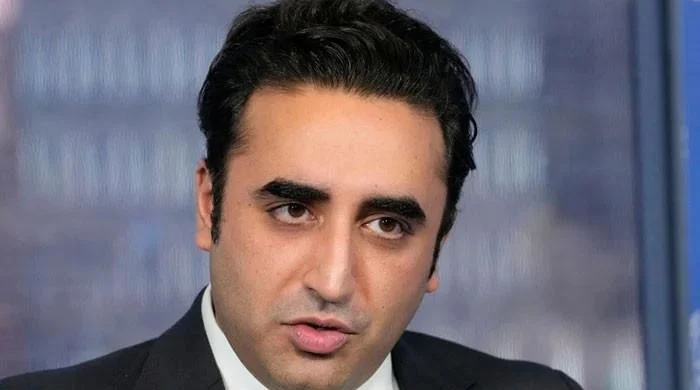Monkeys
Pakistan Peoples Party (PPP) Chairman Bilawal Bhutto-Zardari sharply criticized the opposition’s behavior during President Asif Ali Zardari’s recent address to parliament, likening them to “monkeys in a jungle.”
His comments were a rebuke of the opposition’s use of abusive language during the maiden joint session of parliament following the general elections on February 8. This session was particularly notable as it marked the first such gathering since the elections.
The incident that sparked Bilawal’s remarks occurred when lawmakers from the Pakistan Tehreek-e-Insaf (PTI)-backed Sunni Ittehad Council (SIC) staged a vigorous protest, disrupting the session.
PTI leader Omar Ayub Khan escalated tensions by declaring the President “illegal,” rejecting President Zardari’s “olive branch” extended during his parliamentary address.
Furthermore, PTI Chairman Barrister Gohar Ali Khan characterized their disruptive actions in the joint session as a “21-cannon salute” to President Zardari, underscoring their disdain.
In a press conference held on Friday, Bilawal condemned the opposition’s actions and language as “unparliamentary,” emphasizing that such behavior was out of place in a legislative environment.
He underscored the historical significance of President Zardari’s speech, noting that it was the seventh time he had addressed the parliament as the head of state. During this address, President Zardari outlined a strategic roadmap intended to guide Pakistan out of its current economic predicament.
Bilawal, who served as the foreign minister in the previous government, lamented that the opposition had chosen to mar this historic occasion with their conduct, creating a history of disruption instead of engaging constructively.
He affirmed that while the opposition’s critique would be welcome within the parliamentary framework, the manner of expression was crucial.
Further compounding the issue, National Assembly Speaker Sardar Ayaz Sadiq took disciplinary action against MNAs Jamshed Ahmad Khan Dasti and Muhammad Iqbal Khan, suspending their memberships for the session due to their use of abusive language during the president’s address.
Bilawal supported this decision, stating that it was necessary to set a precedent to maintain decorum and respect within parliamentary proceedings.
Highlighting the importance of a unified approach in foreign affairs, Bilawal concluded his remarks by stressing that political differences should not hinder national unity on international issues.
“Politics is your right, but everyone should be united on foreign policy,” he insisted, calling for a collective stance to strengthen Pakistan’s position on the global stage. This appeal for unity reflects the PPP’s ongoing commitment to both democratic principles and effective governance amid challenges.


